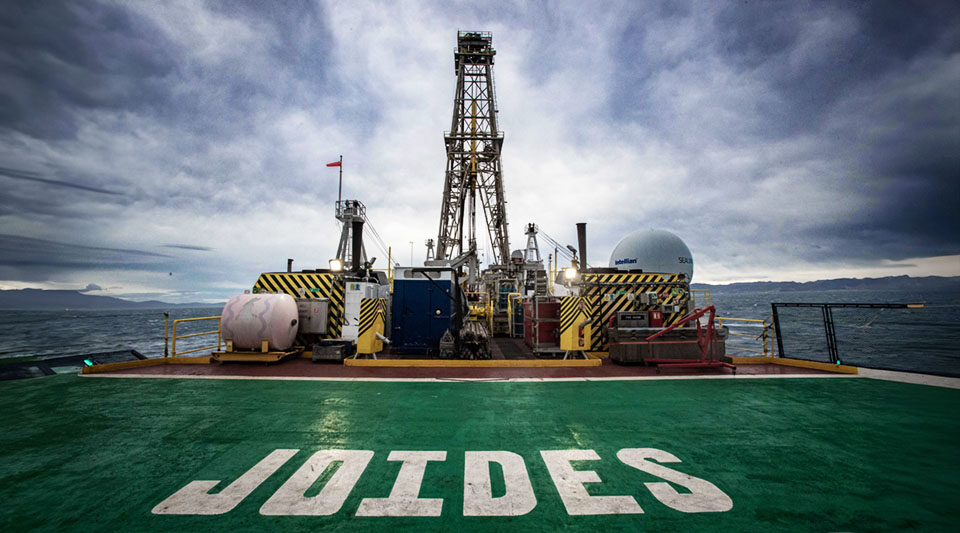Millions of years ago, cataclysmic tectonic events closed the passageway between the Mediterranean and the Atlantic, triggering profound changes in ocean circulation, temperature and salinity.
The JOIDES Resolution, a 470-ft research vessel capable of drilling cores three miles below the seabed, recently sailed with an international team of 117 scientists, engineers, and crew to understand and quantify the oceanographic and climatic consequences of this large-scale geologic change.
“Each core is basically a book of time, buried deep beneath the ocean,” said Melissa Berke, a geochemist and associate professor of civil and environmental engineering and earth sciences at the University of Notre Dame, who was selected to sail as a part of the expedition.
“If we ‘read’ them properly, they can tell us how the atmosphere, carbon storage, and the circulation of ocean waters has changed over time.”
Berke’s research involves extracting ancient leaf wax, a natural coating protecting the leaf from drying out, from marine sediment cores. Wind and water transported these waxes to the ocean where they can be preserved for millions of years. Carbon isotopes of the wax show fluctuations in vegetation type, while hydrogen isotopes indicate rainfall variations.
“To get the big picture of what was going on during this time period, people on board jigsawed their interests and data,” said Berke.
“We have sampling ‘parties’—actually a lot of work. We take thousands of samples from the cores to look for pollen, microfossils, trace metals and more—all with the goal of creating a cohesive story.”


Everyone on board worked 12-hour shifts, every day for two-months. The comradery, sunsets over the ocean and pilot whales whistling at night were a few of the many highlights, said Berke.

The ocean expedition is the first stage of a much larger project, which involves working with the International Continental Drilling Program (ICDP) to recover cores from on land in Morocco and Spain. Shifts in vegetation patterns on land may be correlated with changes in ocean circulation or global climate dynamics. Forests prosper or retreat, for example, when ocean circulation patterns fluctuate.
“The more we understand our place in the global climate system, the more resilient we’ll be to the changes that are happening right now,” said Berke.
The JOIDES, the acronym for ‘Joint Oceanographic Institutions for Deep Earth Sampling’, will be decommissioned for scientific operations this summer. Berke says the research community is hopeful a new vessel will be acquired in the coming years to replace this 46-year-old research ship.
— Karla Cruise, Notre Dame Engineering
